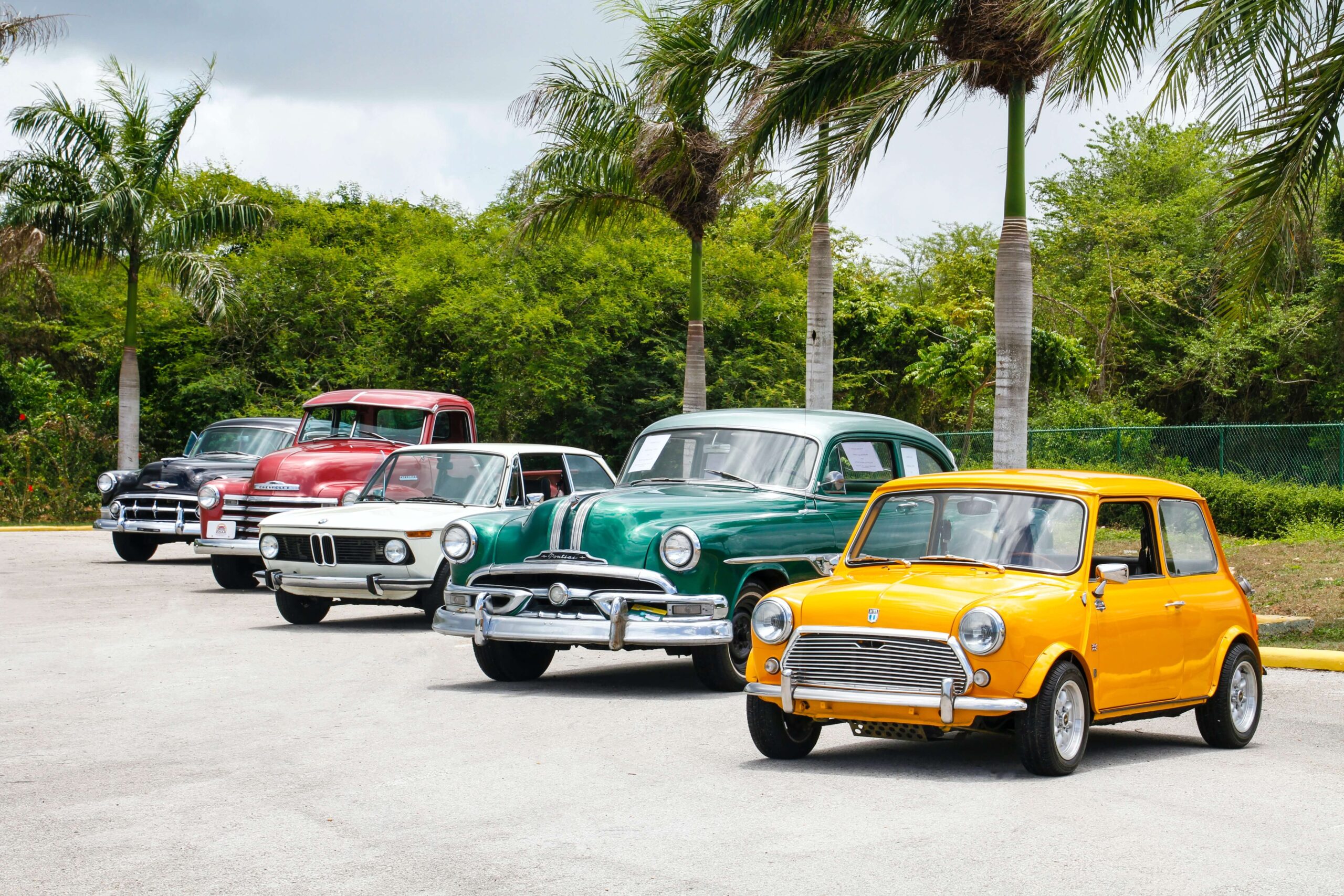A Guide to Buying Your First Classic Car
Classic cars are not just vehicles; they are timeless pieces of art and history, embodying the essence of an era long gone. When you buy a classic car, you are investing in a symbol of automotive heritage. However, the journey to acquiring the perfect classic car is filled with twists and turns. In this comprehensive guide, we will navigate through the essential steps and considerations to help you make an informed decision.
1. Identifying Your Dream Classic Car
The first step in buying a classic car is identifying the model that resonates with you. Reflect on what draws you to classic cars – is it the design, the history, or the unique driving experience? Each classic car has its own story, characteristics, and quirks. Research various models, consider the availability of parts, and assess the maintenance requirements. By understanding what you are looking for, you can narrow down your options and focus on finding the classic car that aligns with your passion and lifestyle.
The condition of a classic car is paramount. Assessing the vehicle’s state will give you insight into the amount of work and investment needed to restore and maintain it. Look for signs of rust, check the engine, and evaluate the interior. It’s also crucial to verify the authenticity of the car, ensuring it has original parts and matching numbers. Consulting with classic car experts and enthusiasts will provide valuable insights and help you make an educated decision.
Price is a significant factor in any investment, and classic cars are no exception. Establishing a budget will help you navigate the market and avoid overspending. Consider not only the purchase price but also the cost of restoration, maintenance, insurance, and storage. By weighing these factors, you can determine whether a particular classic car is a viable investment and aligns with your financial capabilities.
2. Exploring Financing and Insurance Options
Financing a classic car can be different from financing a modern vehicle. Explore various financing options, compare interest rates, and understand the loan terms. Some lenders specialize in classic car financing and offer tailored solutions to meet your needs. Securing pre-approved financing will give you a clear budget and strengthen your negotiating position when dealing with sellers.
Insurance is essential to protect your investment. Classic cars require specialized insurance policies that consider the vehicle’s age, rarity, and value. Research different insurance providers, compare quotes, and read the terms and conditions carefully. Opt for a policy that offers comprehensive coverage, including protection against theft, damage, and liability. Additionally, consider joining a classic car club, as some clubs offer exclusive insurance discounts to members.
Appraising the value of a classic car can be challenging due to its unique nature. Consulting with appraisers who specialize in classic cars will provide an accurate valuation, taking into account the vehicle’s condition, rarity, and historical significance. An appraisal will not only help you determine the fair market value but also assist in negotiating the purchase price and securing adequate insurance coverage.
3. Navigating the Buying Process
Once you have identified your dream classic car and explored financing and insurance options, it’s time to navigate the buying process. Begin by researching reputable dealers, private sellers, and online platforms specializing in classic cars. Reach out to the seller, ask detailed questions about the car’s history, condition, and documentation. Request a comprehensive inspection and test drive to assess the vehicle’s performance and identify any potential issues.
Negotiating the price is a critical step in the buying process. Armed with your research, appraisal, and budget, approach the negotiation with confidence. Be prepared to walk away if the deal does not meet your expectations. Remember, buying a classic car is not only a financial investment but also an emotional one. Ensure that you are satisfied with the condition, price, and authenticity of the car before finalizing the purchase.
Finalizing the deal involves completing the paperwork, transferring the title, and arranging payment. Review the sales agreement carefully, verify the vehicle identification number (VIN), and ensure that all terms and conditions are clearly stated. Once the deal is finalized, arrange for the transportation of the classic car to your location. Consider using specialized car transport services to ensure the safe and secure delivery of your timeless treasure.
FAQs About Buying a Classic Car
- Q: How can I verify the authenticity of a classic car? A: Verifying the authenticity of a classic car involves checking the vehicle identification number (VIN), ensuring that the car has original parts and matching numbers, and researching its history. Consulting with classic car experts, enthusiasts, and organizations can also provide valuable insights into the car’s authenticity.
- Q: What are the key factors to consider when assessing the condition of a classic car? A: When assessing the condition, look for signs of rust, inspect the engine and mechanical components, evaluate the interior and exterior, and check for any modifications. Additionally, a comprehensive inspection by a qualified mechanic specializing in classic cars can identify any potential issues.
- Q: Are classic cars a good investment? A: Classic cars can be a good investment, but it depends on various factors such as rarity, condition, historical significance, and market demand. It’s essential to conduct thorough research, consult with experts, and consider the costs of restoration, maintenance, and insurance when evaluating the investment potential.
- Q: How do I determine the fair market value of a classic car? A: Determining the fair market value involves researching recent sales of similar models, consulting with classic car appraisers, and considering factors such as condition, rarity, and historical significance. Online classic car valuation tools and auction results can also provide insights into the current market value.
- Q: What are the financing options available for buying a classic car? A: Financing options for classic cars include specialized classic car loans from certain lenders, personal loans, home equity loans, or using a line of credit. It’s important to compare interest rates, loan terms, and requirements from different financing sources to find the most suitable option.
- Q: Do I need specialized insurance for a classic car? A: Yes, classic cars typically require specialized insurance policies that consider the vehicle’s age, rarity, value, and usage. These policies often offer agreed value coverage, which pays the car’s full insured amount in the event of a total loss. Researching and comparing quotes from various classic car insurance providers will help you find the best coverage.


